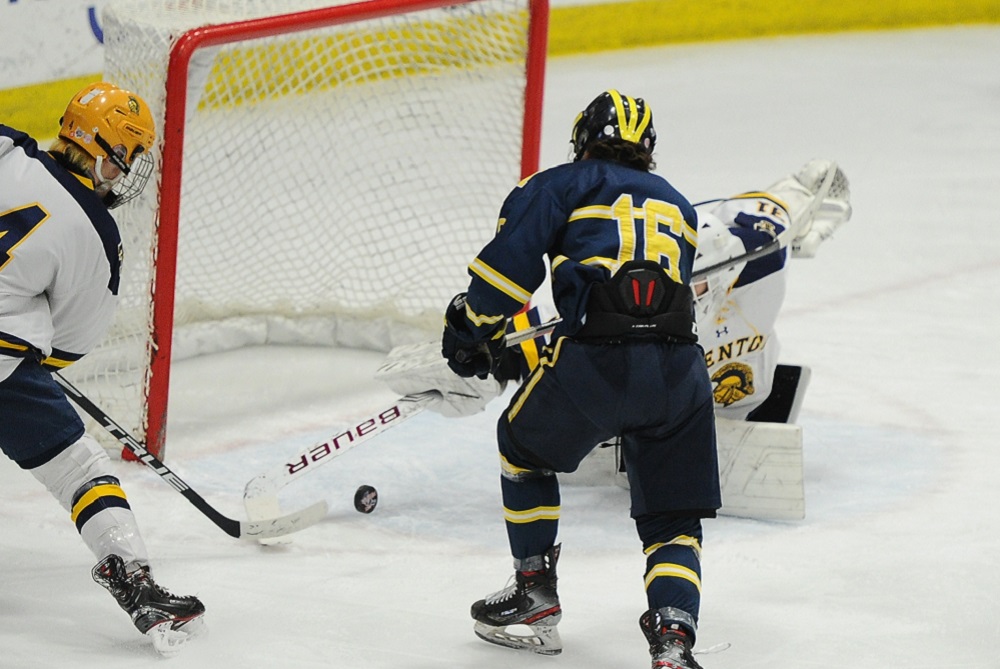
Be the Referee: Uncatchable Pass
September 20, 2018
This week, MHSAA Executive Director Mark Uyl explains the differences between high school and college and pro rules when it comes to an uncatchable pass.
Be The Referee is a series of short messages designed to help educate people on the rules of different sports, to help them better understand the art of officiating, and to recruit officials.
Below is this week's segment – Uncatchable Pass - Listen
Today we’re going to talk about one of the most misunderstood rules at the high school level, and that deals with the uncatchable pass.
All of us have sat in front of our televisions on Saturday or Sunday and seen the long pass get thrown, followed immediately by the throwing of the flag. As the officials discuss what happened, the referee invariably clicks on the microphone and announces that there is no foul for pass interference because the pass was uncatchable.
At the high school level, that is not a factor in deciding whether or not pass interference has occurred. The ball does not have to be catchable, and if the contact is ruled as pass interference, that foul stands, regardless of the quality of the pass.
Past editions
September 13: Soccer Rules Change - Listen
September 6: You Make the Call: Face Guarding - Listen
August 30: 40-Second Play Clock - Listen
August 23: Football Rules Changes - Listen

Be the Referee: More Lines
By
Sam Davis
MHSAA Director of Officials
January 17, 2023
Be The Referee is a series of short messages designed to help educate people on the rules of different sports, to help them better understand the art of officiating, and to recruit officials.
Below is this week's segment – More Lines - Listen
Lines, lines, everywhere lines. But as we learned last week, different lines mean different things.
To recap, on the line in basketball and football is out of bounds. But in soccer, tennis, volleyball, baseball and softball – on the line is in bounds.
But what about other sports?
In hockey – the puck has to be all the way over the line to be considered a goal or to be in the next zone.
In golf, a ball on the line is in play, not out-of-bounds.
Lacrosse is like football – a ball touching the line is out.
How about a track example? In the long jump – if your foot touches the line, it’s a foul.
And in bowling, if you completely cross the line – it’s a foul.
Know the lines and you’ll always know if you are in … or out.
Previous Editions:
Jan. 10: On the Line - Listen
Jan. 3: Basketball Measurements - Listen
Dec. 13: Pregame Dunks - Listen
Dec. 6: Gymnastics Judges - Listen
Nov. 22: Football Finals Replay - Listen
Nov. 15: Back Row Illegal Blocker - Listen
Nov. 8: Swim Turn Judges - Listen
Nov. 1: Soccer Referee Jersey Colors - Listen
Oct. 25: Cross Country Tie-Breaker - Listen
Oct. 18: Soccer Shootouts - Listen
Oct. 11: Safety in End Zone - Listen
Oct. 4: Football Overtime Penalty - Listen
Sept. 27: Kickoff Goal - Listen
Sept. 20: Soccer Timing - Listen
Sept. 13: Volleyball Replays - Listen
Sept. 6: Switching Sides - Listen
Aug. 30: Play Clock - Listen
Aug. 23: Intentional Grounding Change - Listen

